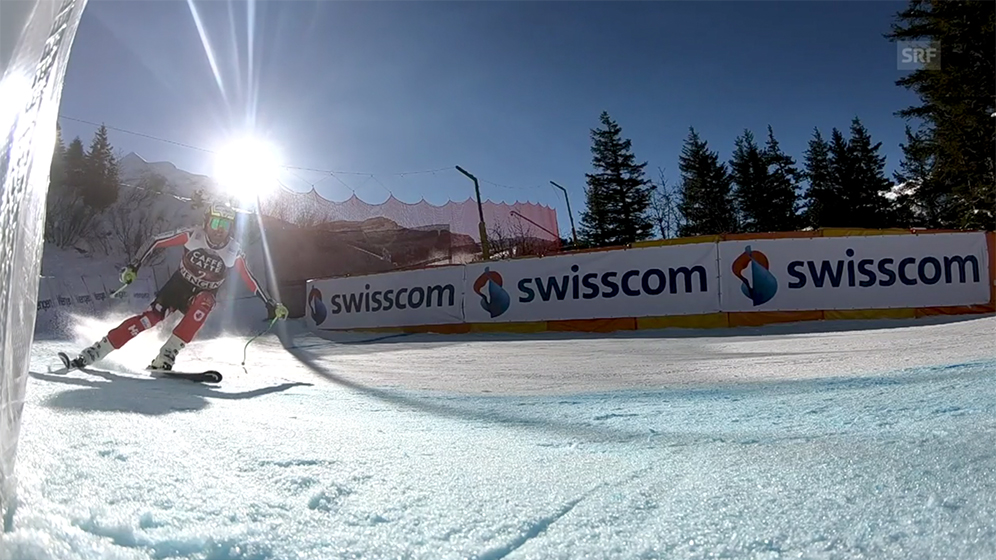AZ Medien could step into the Lauberhorn breach
Roger Elsener, Managing Director of TV and Radio at AZ Medien, is convinced that a Yes to No Billag would not necessarily mean the end of the Lauberhorn downhill race. The media company is interested in licenses that become available.

No Lauberhorn Downhill without broadcasting - this statement seems indisputable. For SRG, producing the most prestigious race on the annual World Cup agenda is something of a supreme discipline: With a great deal of effort, the latest technology and unique footage, SRF carries a two-hour commercial for Switzerland as a winter sports country out into the world. Last Saturday, 23 SRF cameras captured Beat Feuz's victory, and over ten tons of equipment were set up and taken down for the broadcast.
The downhill race in Wengen is considered one of the argumentative prime examples of expensive, lavish productions that could not be afforded without radio and TV fees. The Lauberhorn OC shows itself to be 20 minutes correspondingly concerned about the upcoming No Billag initiative. Everything depends on SRG production - the attractive platform, for example, is a prerequisite for Jungfrau Railways to invest 1.7 million Swiss francs annually in the race. Without SRG, Switzerland's number one winter sports showcase would probably look old.

Not everyone sees it that way. Roger Elsener of AZ Medien tells the SonntagsZeitung: "We could basically handle the production costs of the Lauberhorn ski races and broadcast them." The prerequisite, according to Elsener, would be that the entire Alpine Ski World Cup could be taken over and the foreign-produced races from abroad could be broadcast at low cost.
The fact that a broadcast of the Lauberhorn race requires not only financial resources, but above all a great deal of know-how, would not be a hurdle for AZ Medien, as Elsener explained when asked by Werbewoche: "We would hire an external production company that brings the necessary know-how for ski productions. Just as we do when we broadcast other live sporting events. In some cases, we also work with TPC, for example at CSI Zurich."
Other licenses, if they became available, would also be of interest to AZ media station TV24: ice hockey, tennis or soccer in the sports sector and other rights in the entertainment sector, according to Elsener. The Spengler Cup, the soccer Champions League, the games of the Swiss national team - there would probably be many interested parties for the "icing on the cake" of TV sports. 3+ CEO Dominik Kaiser also showed strong Interest at the Nati games, which represent a kind of holy grail for SRG.

The consequences for marginal sports would be unclear
After a No-Billag yes, it will be much more difficult for sports that are less popular with the public but are still covered by SRG today. Jürg Stahl, President of Swiss Olympic, told the SonntagsZeitung that he could not imagine that the entire range could be covered as well as it is with SRG thanks to the fees. SRG is an important factor in why Switzerland - more than almost any other country - is so successful in so many sports.
No-Billag initiator Olivier Kessler disagrees. He is convinced that the incentive systems would enable private companies to offer the same services on the free market. And even better and cheaper. While state media would receive fee money regardless of performance and efficiency, private broadcasters would have to orient themselves to customer needs and be economical with their funds.
When asked by Werbewoche, Roger Elsener confirms that private and fringe sports are not mutually exclusive: "In December/January, we just showed that we had successfully brought a fringe sport like darts onto Swiss private television for the first time. Nota bene, a fringe sport that SRF has never shown before." In addition, sports such as floorball, horseback riding and dancing have already been broadcast in the past. (hae)








